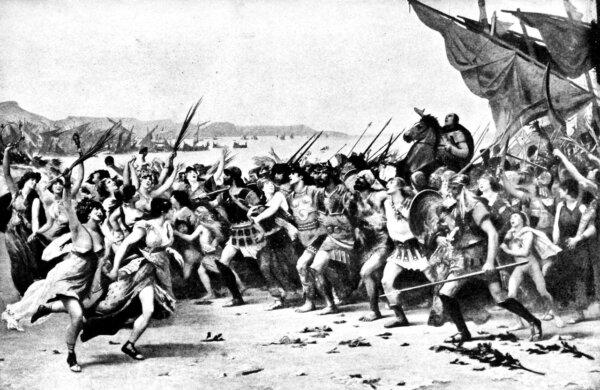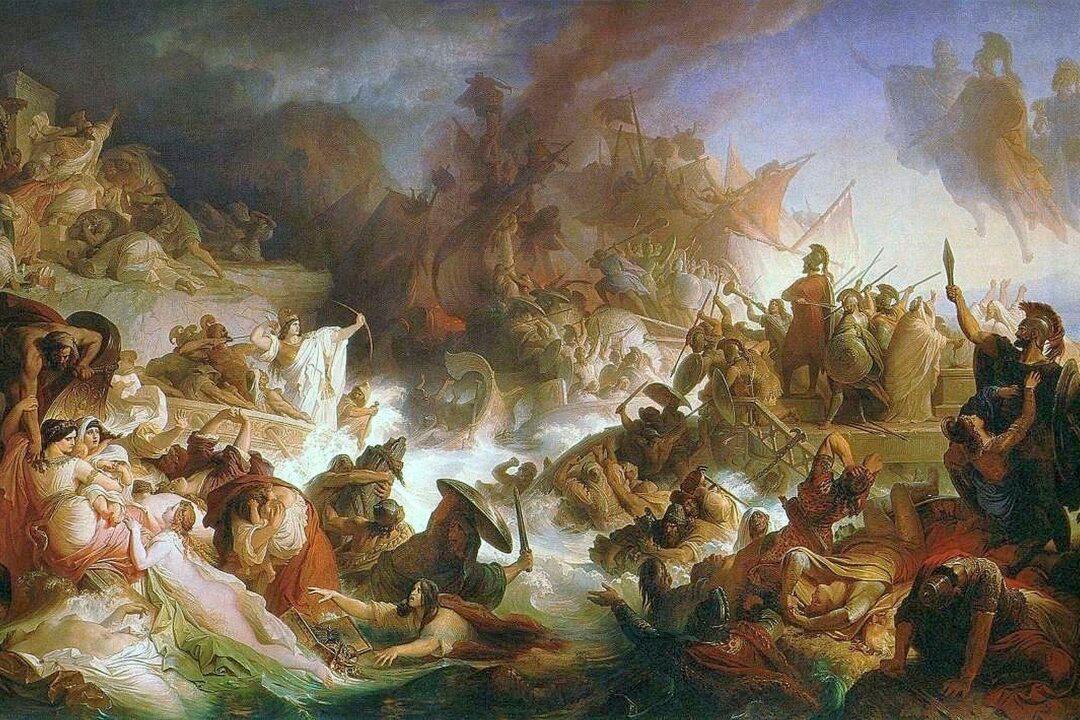It took place in the year 480 B.C., close to the island of Salamis, just about halfway down the east coast of Greece. The battle pitted a small group of small Greek city-states against the mighty Persian Empire. Most of the 271 ships on the Greek side were owned by the Greek city-state of Athens, and so Athens was at the core of whatever resistance the allied Greeks could offer. And at the core of the Athenian resistance was an alliance between a good guy and a scoundrel.
Enter the Scoundrel
The scoundrel’s name was Themistocles. The other Greek cities looked on him with suspicion, and so he had made a large gesture of deferring command of the fleet to a Spartan, Eurybiades. As far as Themistocles was concerned, it was perfectly all right for Eurybiades to have the title of commander as long as he, Themistocles, turned the actual wheel of power. And this is what he did, accepting and offering bribes, sending secret messages to Greeks and Persians alike, and holding command of the Athenian navy, which was the mass of the allied command anyway.
The triumph of Themistocles after the Battle of Salamis, 19th century illustration. Public Domain





